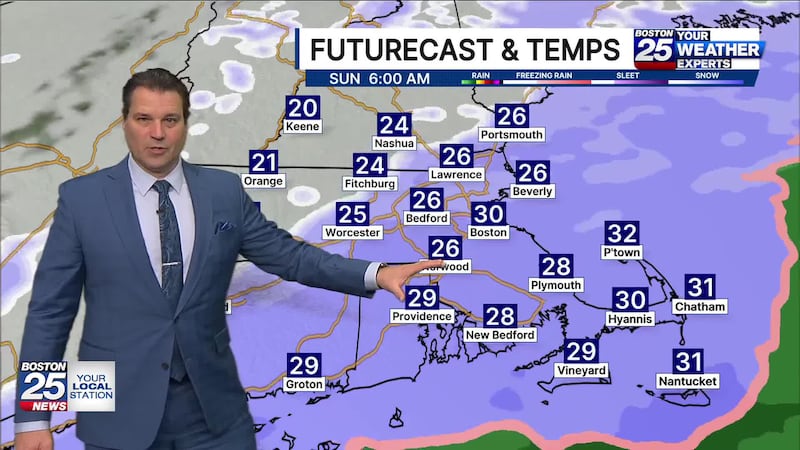BOSTON — It is socially alluring, psychologically and physically addictive. And, in the past, it’s been touted as having health benefits.
But alcohol lost a bit of its luster last week when the U.S. Surgeon General linked alcohol use to the potential development of at least seven types of cancer. Dr. Vivek Murthy is recommending the placement of cancer warning labels on all alcoholic beverages.
None of this is news to Pat Dooling, a former drinker who quit alcohol use three years ago.
“I drank very successfully to the point where I felt like I had to quit,” Dooling said. “It was an amazing life change for me.”
It also turned into a business opportunity. Dooling operates Dray, the only stores in the Boston area exclusively selling non-alcoholic beer, wine, and spirits. His first location opened in the South End about a year ago. He then expanded to a second location in Central Square, Cambridge.
“There’s really a big tidal wave of change in consumption habits globally and certainly in the U.S. as well,” Dooling said. “To me, one of the biggest underpinnings is the honest health science that has really started to come out. A couple of decades ago, there were studies showing a couple of drinks a night are fine. Or my favorite is that the French live longer because they have a bottle of wine a day.”
Doctors say a bottle of wine a day is too much for anybody. And that even one serving of an alcoholic beverage has negative health effects.
“You should never start drinking for your health,” said Sarah Wakeman, MD, Senior Medical Director for Substance Use Disorder at Mass. General Brigham. “Alcohol is not something that improves your health.”
Wakeman said ‘low-risk’ drinking can fit into a healthy lifestyle -- but that means very limited consumption of alcohol: no more than seven drinks per week for women, no more than 14 a week for men -- and no more than three servings of alcohol per day for either gender.
Wakeman and Dooling are both fans of the growing movement to start the new year off clear-eyed and straight-up. Dry January, which has grown in popularity since it was formally christened ten years ago, represents an opportunity to question and reevaluate one’s relationship with alcohol.
Which can be complicated.
“Part of it is taste, part of it is ritual,” Dooling said.
And part of it is societal bombardment.
“It took quitting drinking for a period of time to see just how present alcohol is in so many of our social situations,” Dooling said. “I go to children’s birthday parties where there’s alcohol on offer. It’s extraordinary how prevalent it is and how people are encouraged to participate in that.”
Dooling said sales at Dray enjoyed a healthy bounce in January.
“This is our second Dry January in business and it gets bigger every year,” he said.
“More people participate every year, there’s more discussion every year. January for us is about two to three times the normal business we would do.”
The prospect of committing to a Dry January may be daunting for many. But Wakeman said even going partially dry is beneficial.
“Start thinking about alcohol-free days,” she said. “If you’re drinking every day, think about having two or three days a week where you’re not drinking alcohol.”
And that’s pretty much where Dray can come in -- with non-alcohol alternatives that have come a long way since the days of O’Douls. An alcohol-free Sauvignon Blanc sampled from Dray tasted as grassy and nuanced as you would expect of the varietal. Dooling said particularly impressive progress has been made in retaining taste with non-alcoholic beers.
Another way to get through Dry January is with medication. The drug naltrexone reduces alcohol cravings and the sense of pleasure alcohol brings. Yet hardly anyone uses it.
“For many people who are struggling to make changes to their alcohol use, it can be a really useful tool,” said Wakeman. “But use of these drugs is in the single digits, percentage-wise. So they’re vastly underutilized.”
Part of that likely has to do with the reputation of a drug used decades ago for alcohol abuse. Disulfiram, known by the brand name Antabuse, discouraged drinking by triggering a violent reaction to alcohol consumption.
Naltrexone and other drugs used for alcohol use disorder do not work in that way, Wakeman said.
What are the benefits to not drinking alcohol? Wakeman said Dry January participants often notice they sleep better, feel more energetic and even look better.
Dooling can attest to that.
“I’ve always struggled with things like anxiety and depression,” he said. “And a lot of times people reach for alcohol as something to soothe that. And we know it does quite the opposite. So mentally, I am feeling much better. I’ve lost weight. I am more active. The real science is, alcohol is just not good for you.”
Download the FREE Boston 25 News app for breaking news alerts.
Follow Boston 25 News on Facebook and Twitter. | Watch Boston 25 News NOW
©2025 Cox Media Group





